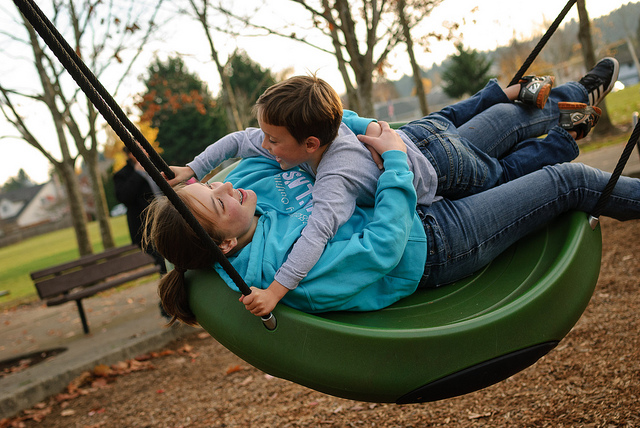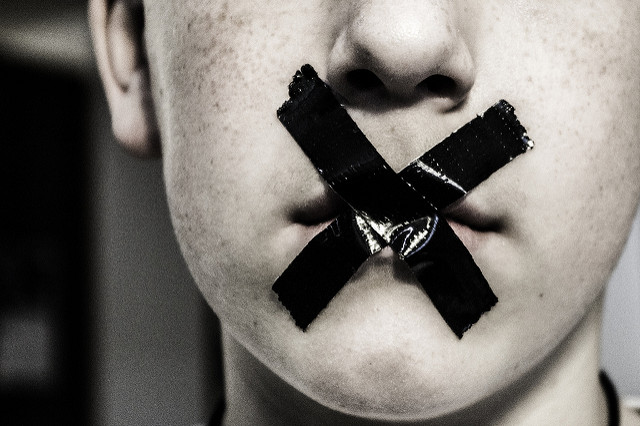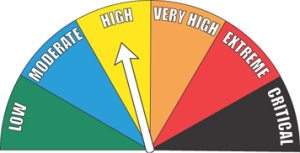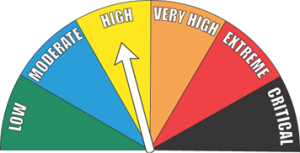Editorial Note: The following is reprinted with permission from Eleanor Skelton’s blog. It was originally published on December 13, 2015.
I grew up in the Village.
The first time I watched M. Night Shyamalan’s 2004 film, my head hurt and one of my roommates asked me if I was okay. I didn’t have words. Sometimes I find those books, those films that resonate so strongly with my own experience, that the bittersweet rush of knowing takes my breath away.
The Village became the movie that I showed all of my friends who’d been affected by a cult environment. As they started to question their high control group, I’d find a way to sneak a movie night with them.
It became our movie, something that we refer to when discussing our past.
There’s a few reasons for this:
1.) The whole thing was manufactured like a utopia to protect innocence.
Many of our parents chose homeschooling to create a new generation, protected from negative influences and intellectually superior to the rest of the world. But our parents grew up attending public schools, something we never experienced.
The elders in the Village came from the Towns, but none of their children can remember the outside world. This is the only life they know. Ivy Walker’s father says in a moment of crisis, “What was the purpose of our leaving? Let us not forget it was out of hope, of something good and right.”
When I was young, my dad told me his middle school classmates used to throw small knifes at each other in the playground and my mom remembers hash being passed around in bags around her Houston high school in the 70s. They and others who grew up in the 60s counterculture movement wanted a better life for their children and believed that removing them from the public schools was the answer.
Just like our parents often told us they’d done things they regretted growing up and we had a unique opportunity to be different, the elders in the Village keep a black box of memories, “so the evil of my past can be kept close and not forgotten.”
Mrs. Clark’s sister, Mrs. Hunt’s husband, and Mr. Walker’s father all died through violence and tragedy. Edward Walker tells his daughter Ivy, “It is a darkness I wished you would never know. There is not one person in this town who has not been so shaken that they questioned the value of living at all.” Ivy says, “I am sad for you, Papa, and for the other elders.”
2.) They sought protection from evil in the ways of the past.
In The Village, a history professor decides to take a group of people and recreate 1840s pioneer America. In the 90s conservative Christian homeschooling movement, our moms taught us to sew our own clothes and we all wore homemade skirts and dresses.
We watched movies like Sheffey about itinerant preachers in the last century produced by Bob Jones University Films and read reprints of Victorian literature like Elsie Dinsmore and A Basket of Flowers from Lamplighter Press and Vision Forum.
I wore one of my pioneer dresses nearly every day when I was 12-14 and pretended that I lived in the colonial era. I checked out and devoured every historical book on the colonial period and Civil War that my mom would allow from the local library.
A friend once said, “I get why they wanted this life for you guys, they meant well. But it turned out to be the Little House on the Prairie fan convention from hell.”
3.) They used euphemisms and emotional repression to ward off what they most feared.
Growing up homeschooled, we didn’t get sex education. Purity culture often adopted a “see no sexy things, hear no sexy things, speak no sexy things” approach. One of my friends never heard the words penis and vagina until college. I was told that dancing was basically “a vertical expression of a horizontal desire,” something to be avoided.
This kind of approach extended to anything considered “evil” or a “bad influence,” including peers, extended family members, and movies or TV shows with magic or profanities. Often, the avoidance became obsessive over time. The circle of safety was ever narrowing.
The settlers in The Village use phrases like “Those We Don’t Speak Of” to refer to the creatures in Covington Woods, or “The Old Shed That is Not To Be Used” for a shack on the edge of town. Red is the bad color, yellow is the safe color. In the opening scenes, two girls sweeping on a porch run out to the yard to uproot and bury a red flower.
Later, Ivy tells Noah, a young man with a mental disability, “This color attracts Those We Don’t Speak Of. You ought not to pick that color berry anymore.” When the villagers find skinned carcasses of livestock, the schoolchildren assume, “Those We Don’t Speak Of did it.”
The light as well as the darkness in humanity becomes repressed, and this affects romantic attraction. Ivy knows Lucius cares deeply for her but won’t act on it. She tells him, “Sometimes we don’t do things we want to do so that others won’t know we want to do them.”
There’s a parallel scene when Lucius tells his mother that Mr. Walker is in love with her.
“He hides, too. He hides his true feelings for you.”
“What makes you think he has feelings for me?”
“He never touches you.”
When Ivy chooses to travel through the woods in spite of the creatures, the other young men sent to protect her are too afraid to go against the rules. “Why have we not heard of these rocks before, why is it that you wear the cloak of the safe color? I cannot go with you, it is forbidden.”
We homeschoolers also had arbitrary rules and standards, always shifting according to the preferences of our authority figures. We were taught to “abstain from all appearance of evil” (1 Thess 5:22) and that “it is a shame even to speak of those things which are done of them in secret” (Eph 5:12).
Just like in many homeschool communities, Noah’s mental illness is dealt with by only natural remedies. Noah dies a monster, which seems to enable stigmatization of mental illness.
Noah becomes the example of what not to be for the other villagers. He becomes the creature, one of Those We Don’t Speak Of. He embodies the darkness that they sought to eliminate from their little world.
“Your son has made our stories real. Noah has given us a chance to continue this place if that is something we still wish for.”
But the one line that echoes in my mind when I think of how I grew up is this:
“I tell you this so you will see some of the reasons for our actions. Forgive us for our silly lies, Ivy, they were not meant to harm.”
No, it was not meant to harm. But it did.










 I explained it to my friend Shelby like this when I had been boycotting for about six weeks:
I explained it to my friend Shelby like this when I had been boycotting for about six weeks:
